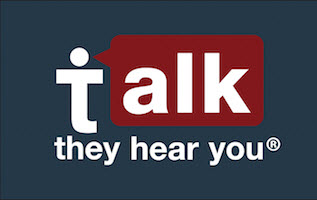
Parents- check out these videos with information that you need to know about preventing youth substance misuse:
NEW! The Importance of Expressing Disapproval of Underage Drinking: https://youtu.be/MLPOlj5H99s
NEW! Helping Teens Get Out of Uncomfortable Situations: https://youtu.be/3EHxjGVzrvI
NEW! Teaching Kids How to Help a Friend: https://youtu.be/i5SyMOIhOi8
Risks of allowing children to sip alcohol: https://youtu.be/cwOF833DY9c
Risks of allowing teens to drink: https://youtu.be/N8azKfo6OpQ
Responding effectively to teen arguing – short: https://youtu.be/PX-5V9_56M4
PUBS signs of alcohol overdose – talk with your kids: https://youtu.be/w_rZqqSg3Eo
Alcohol & the developing teen brain: https://youtu.be/jf5gs2ukEno
Responding effectively to teen arguing: https://youtu.be/QuFEjY7zh-U
Parents, did you know that more than 80% of 10-18 year olds say that their parents are the leading influence on the decision to drink or not? Even though this is a stage of their life when their friends are gaining more influence, parents are still the strongest influence on their children when it comes to youth substance use. It may not always seem like it, but your children really hear your concerns, which is why it’s important to discuss the risks of using alcohol and other drugs with them.
It’s never too early to start talking about substance use, and it’s best to do so before they are exposed to it. If you talk to your kids directly and honestly, they are more likely to respect your rules and advice about alcohol and drug use. If this has not become a regular conversation in your family yet, it’s also never too late to start. Keep reading for some tips and more resources for these important conversations.
Talk. They Hear You. 5 Conversation Goals
Source: https://www.samhsa.gov/talk-they-hear-you/parent-resources/five-conversation-goals

- Show you disapprove of underage drinking and other drug misuse.
Don’t assume that your child knows how you feel about drinking and substance use. Send a clear and strong message that you disapprove of underage drinking and other substance misuse.
- Show you care about your teen’s health, wellness, and success.
Your children are more likely to listen and the conversation will go better when they know you’re on their side and are concerned about their health and well-being. Let them know why you don’t want your child to drink or use other drugs—because you want them to be happy, healthy and safe.
- Show you’re a good source of information about alcohol and other drugs.
You want your child to make informed decisions about alcohol and other drugs with reliable information about its dangers and not be misled by unreliable sources. Establish yourself as a trustworthy source of information, and stay informed.
- Show you’re paying attention and you will discourage risky behaviors.
Young people are more likely to drink or use other drugs if they think no one will notice. Show that you’re aware of what your child is up to. Ask about friends and plans because you care, not because you’re judging.
- Build your teen’s skills and strategies for avoiding drinking and drug use.
Even if you don’t think your child wants to drink or try other drugs, peer pressure can be a powerful thing. Helping your teen come up with a plan to avoid alcohol and drug use can help them make better choices. Talk with your teen about what they would do if faced with a difficult decision about alcohol and drugs, and practice with them how they might say “no thanks.”
Don’t worry, you don’t have to get everything across in one talk. Plan to check in frequently with quick chats and keep this important conversation going.
For more information and additional resources:
The Foundation for Advancing Alcohol Responsibility
- More information and conversation tips for kids of all ages
Ask Listen Learn: Kids and Alcohol Don’t Mix
- Free digital underage drinking prevention program for kids ages 9-13 and their parents and educators.
Gordie Center
- How to teach your kids to be active bystanders to intervene in problem situations with alcohol, including a life-threatening overdose.
Family Checkup: Positive Parenting resources
www.drugabuse.gov/family-checkup
- Information and video clips to help parents practice positive parenting skills.
MADD – Power of Parents Resources
https://www.madd.org/the-solution/power-of-parents/
- Tools to help parents of middle school students have ongoing, intentional and potentially lifesaving conversations about alcohol with their kids.
The Invitation to Change – A Short Guide
https://invitationtochange.com/
- A holistic helping framework and workbook, based in science and kindness, designed for the families and loved ones of people struggling with substance use.
Center for Parent and Teen Communication
- Learn about effective parenting and open communication strategies shown to raise happy, healthy, and successful children.